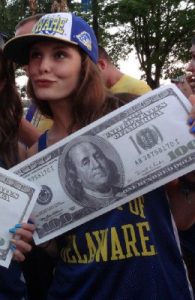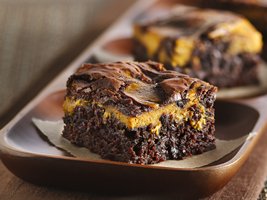Last week, I received an email asking me to submit what was deemed a “Bio-Sketch” for my convocation ceremony. “It should be roughly 50 to 100 words,” read the form email, “stating your full name, your major(s) and minor(s), and 2 to 4 additional sentences about yourself, including any special accomplishments, interests, awards, experiences or future plans that you would like to share about yourself.”
If I had to give a rough estimate, this is probably the tenth email I have received this year that asked me to describe myself in terms of individual promotion.
College has taught me many things. Humility is not one of them.
When you select a college, you’re told that you have chosen to attend the greatest school on earth, that you are surrounded by the greatest peers you could ever imagine, that these are the greatest four years of your life and that what lies ahead of you can only be greatness, defined by an array of statistics detailing rankings and happiness surveys and employment histories. You live in a bubble founded on the principle of narcissism. And when you live in such a bubble, it’s impossible to ignore the overwhelming compulsion that you, as a member of a community that engages in all manner of self-elevation, are also the best.
Over the course of my college career, I’ve seen this compulsion in action. I’ve felt it and I’ve acted on it. I’ve rarely been told to keep my pride in check or to watch my ego, primarily because everyone else was doing the same thing. At some point between freshman move-in day and junior pin ceremony, my classmates and I came to the consensus that accomplishments were only real if you bragged about them. We started to believe that it was not just our job to be successful, it was also our duty to ensure that the rest of the world knew exactly how successful we really were. We bought into the bubble of narcissism. Our egos overpowered our roots and we rejected the importance of humility in lieu of acknowledging our personal greatness because for some reason, we believed that we had made things happen on our own.
Here’s the other truth about college: you don’t do anything on your own. The greatest accomplishments that you list off in whatever your convocation bio may be were not the work of you, as an isolated individual. They are the result of a combination of forces and people acting in your favor. You are here, in whatever your state of success may be, because someone supported you along the way, whether that be your family, your mentors, your academic advisors, or the lady that filled your coffee cup at Dunkin Donuts every day of freshman year.
Working hard is admirable. Having multiple majors and minors, accomplishments, interests, awards, and experiences, 100 words of greatness to be spoken about in front of other people and their parents is impressive. But what’s far more beautiful is the ability to be grateful for whatever it is that brought you to the point of writing a paragraph for your college convocation ceremony. Crediting only yourself for your greatest successes and accomplishments is almost always a misrepresentation of personal history.
~Erin Dugan




